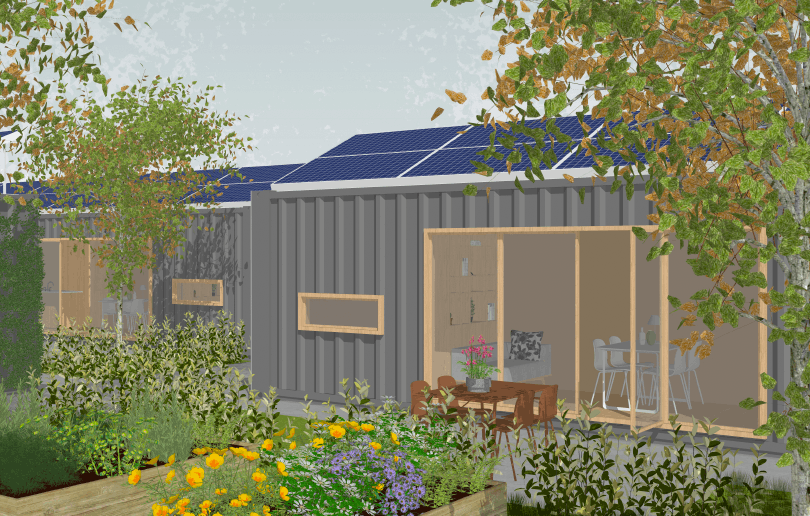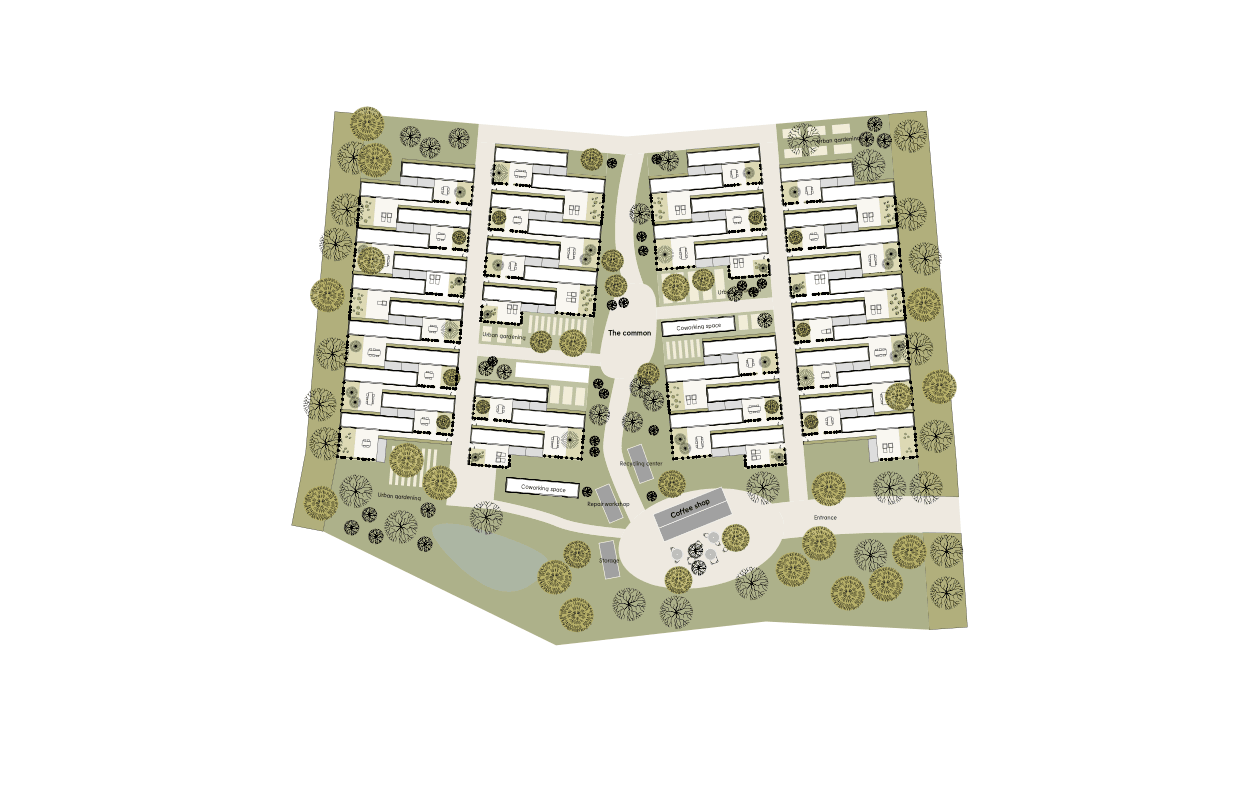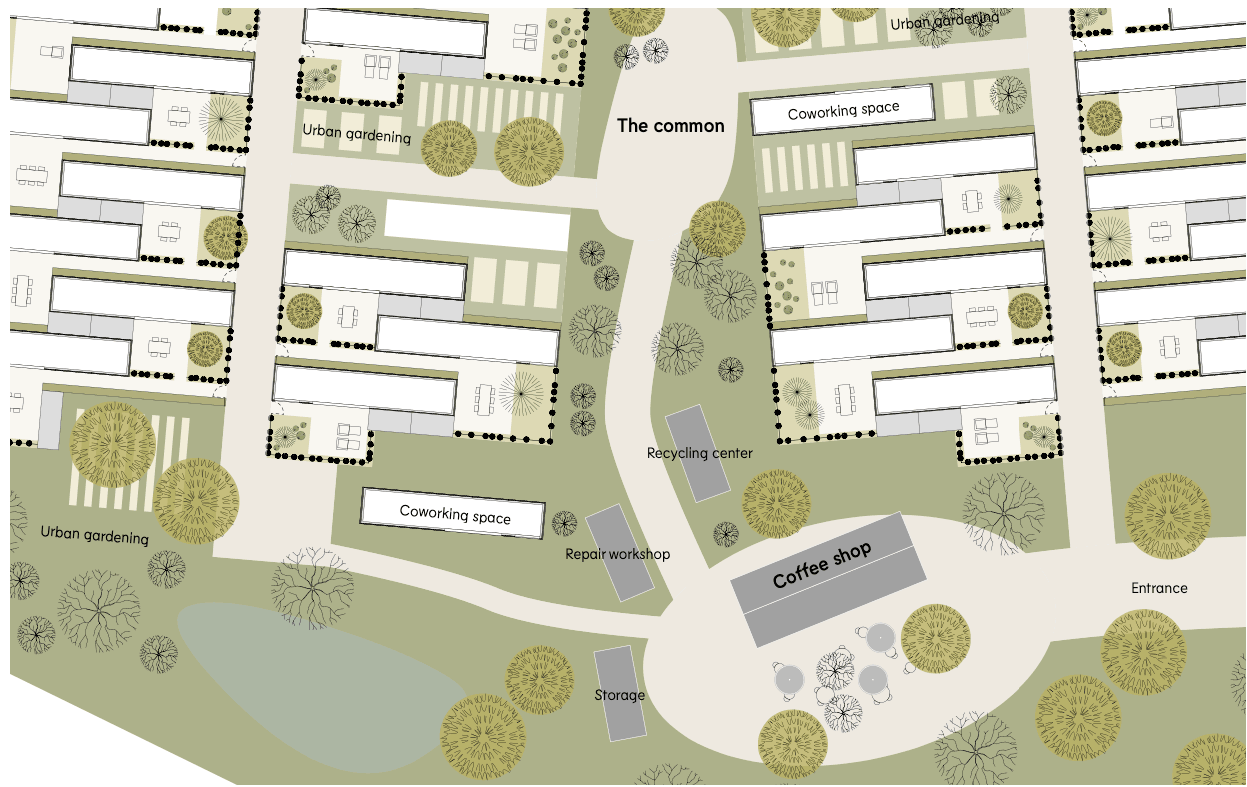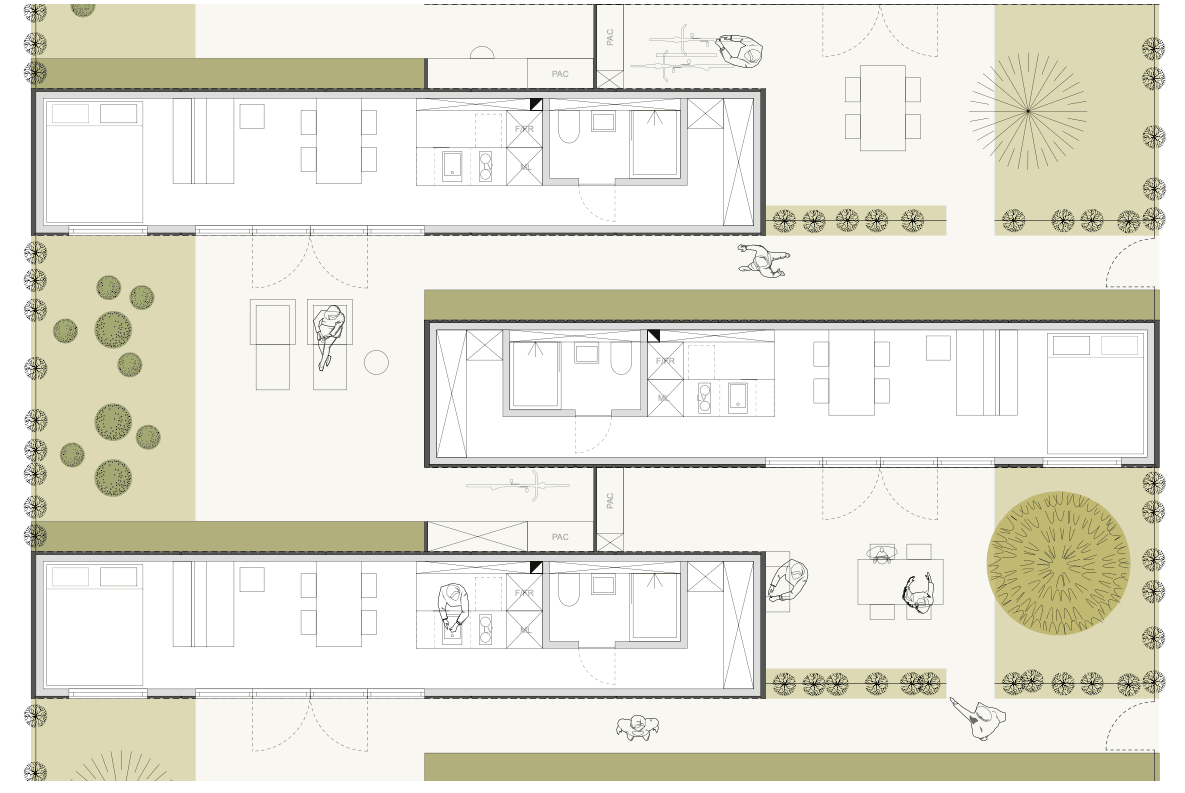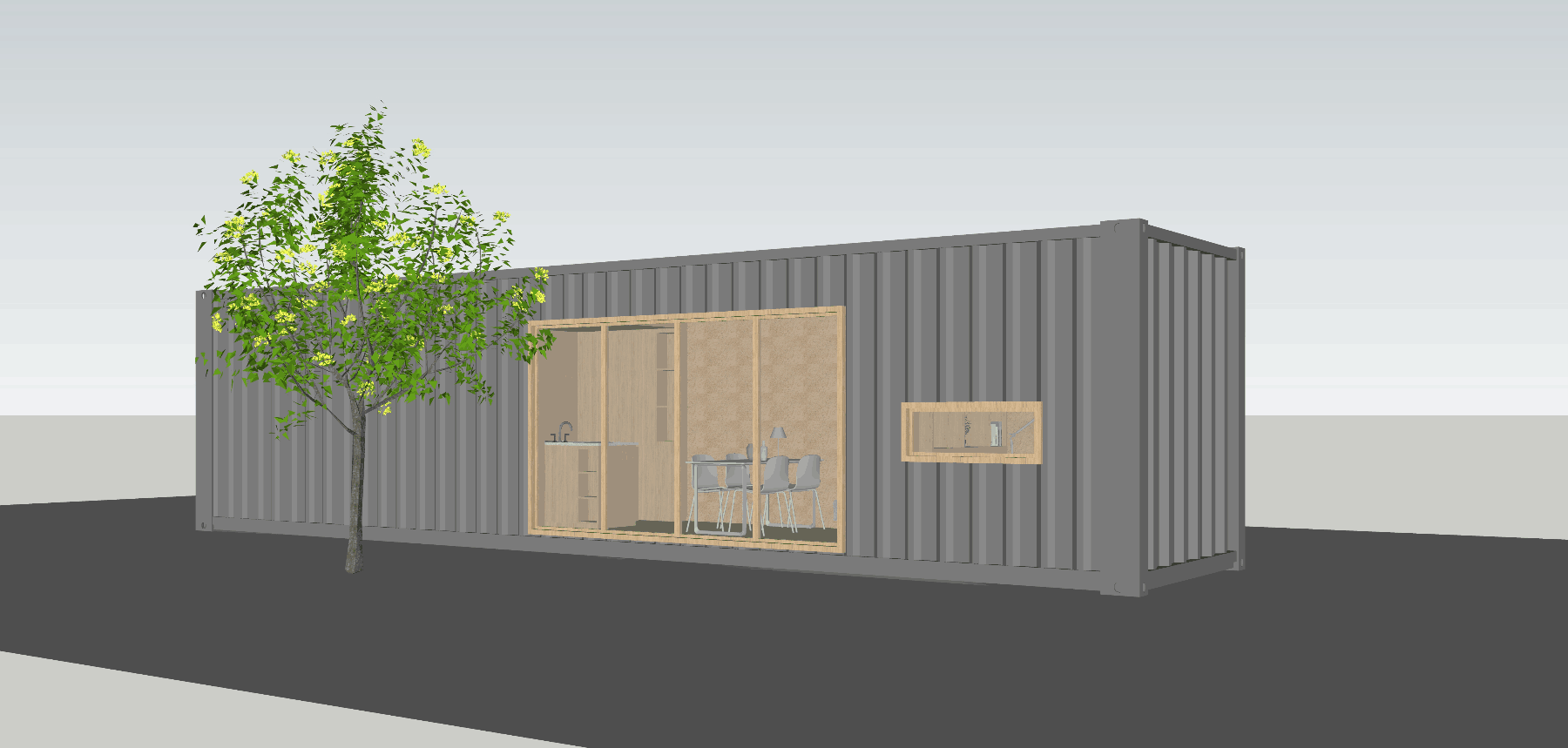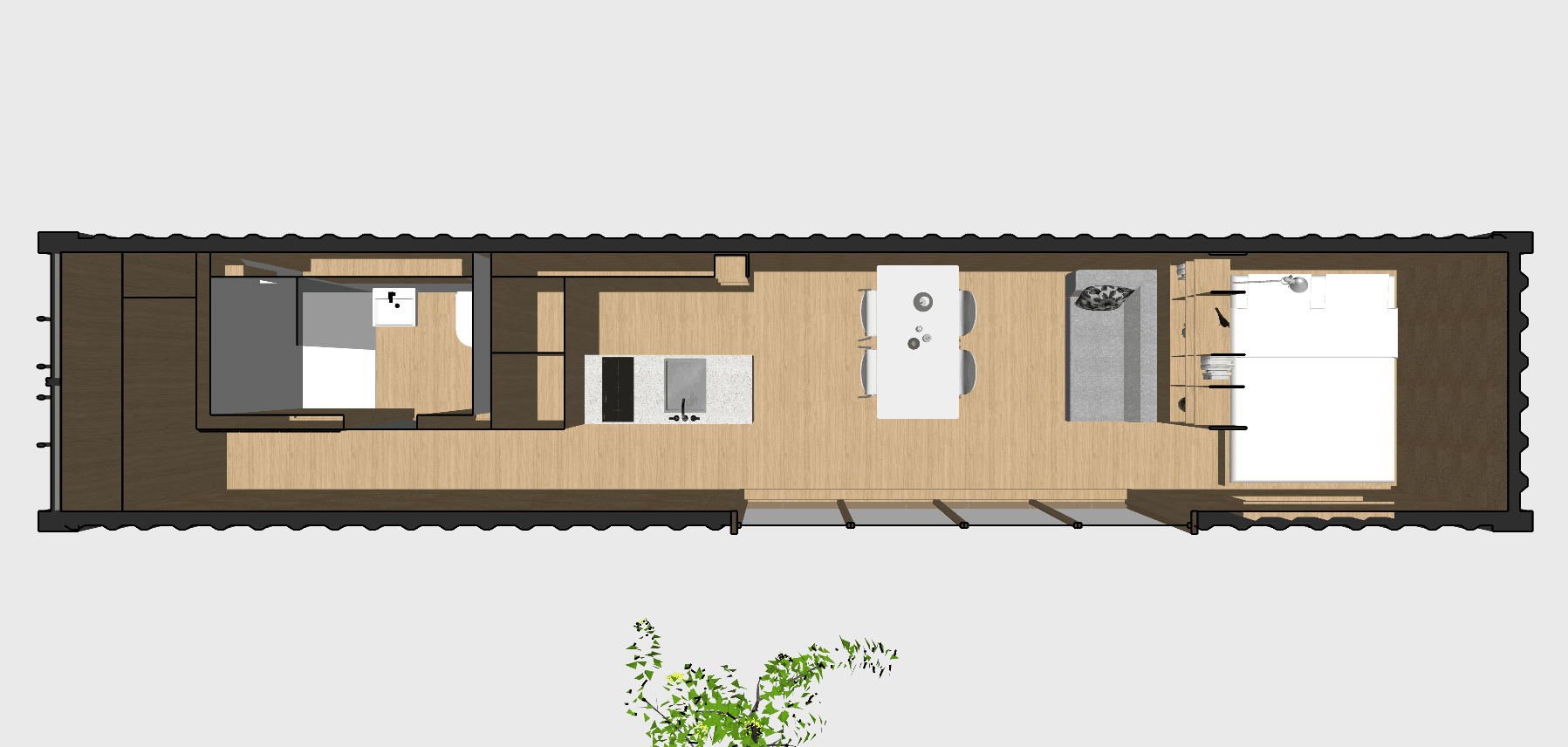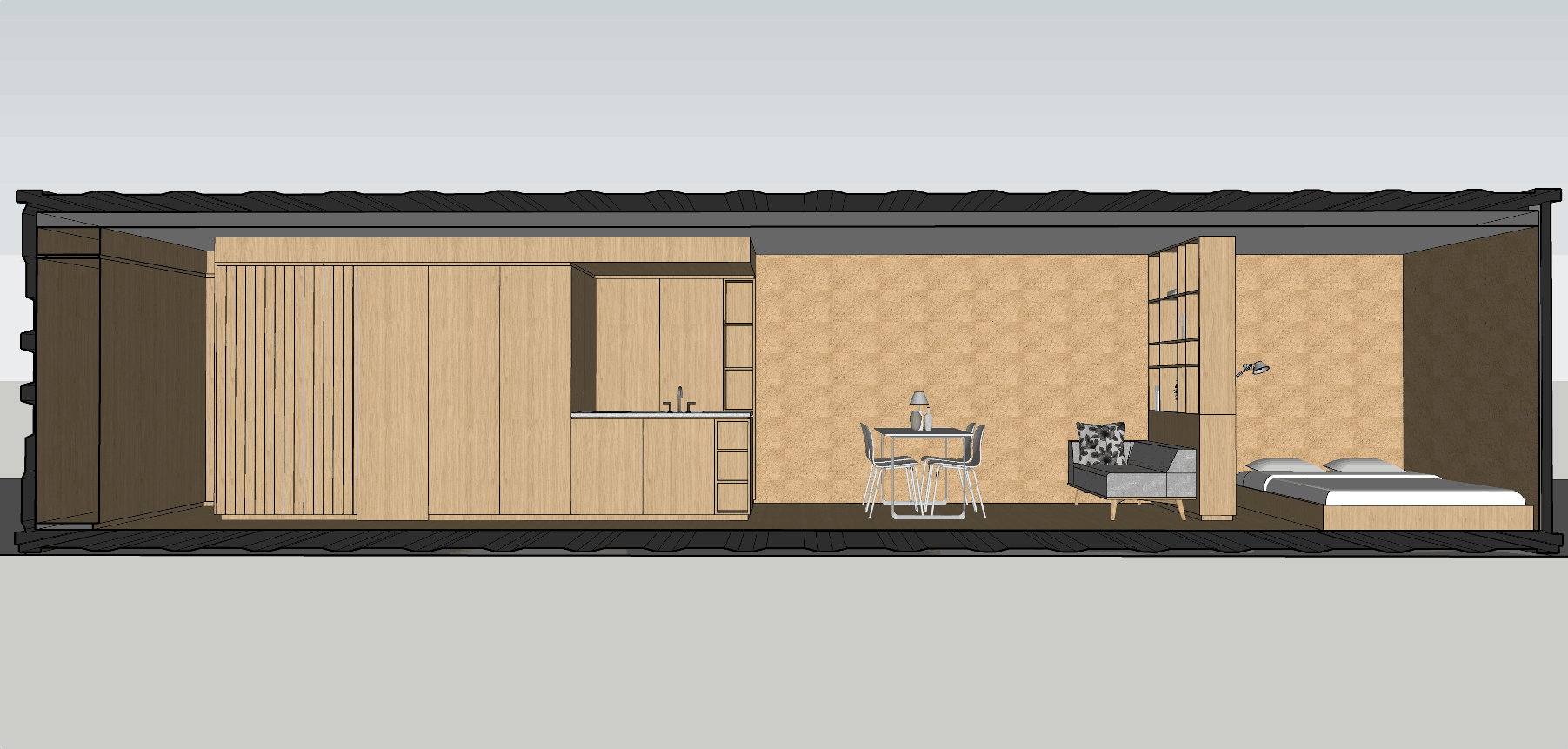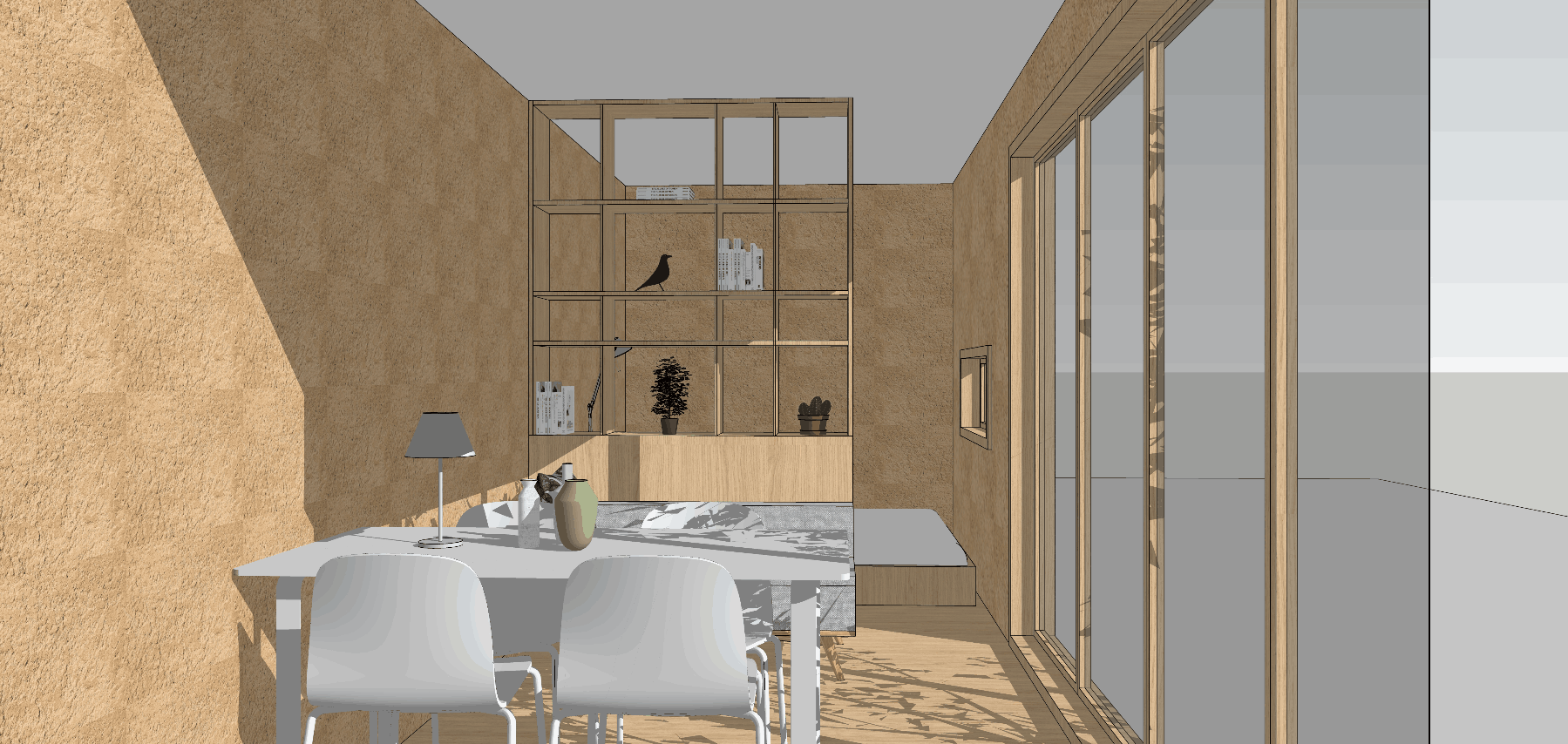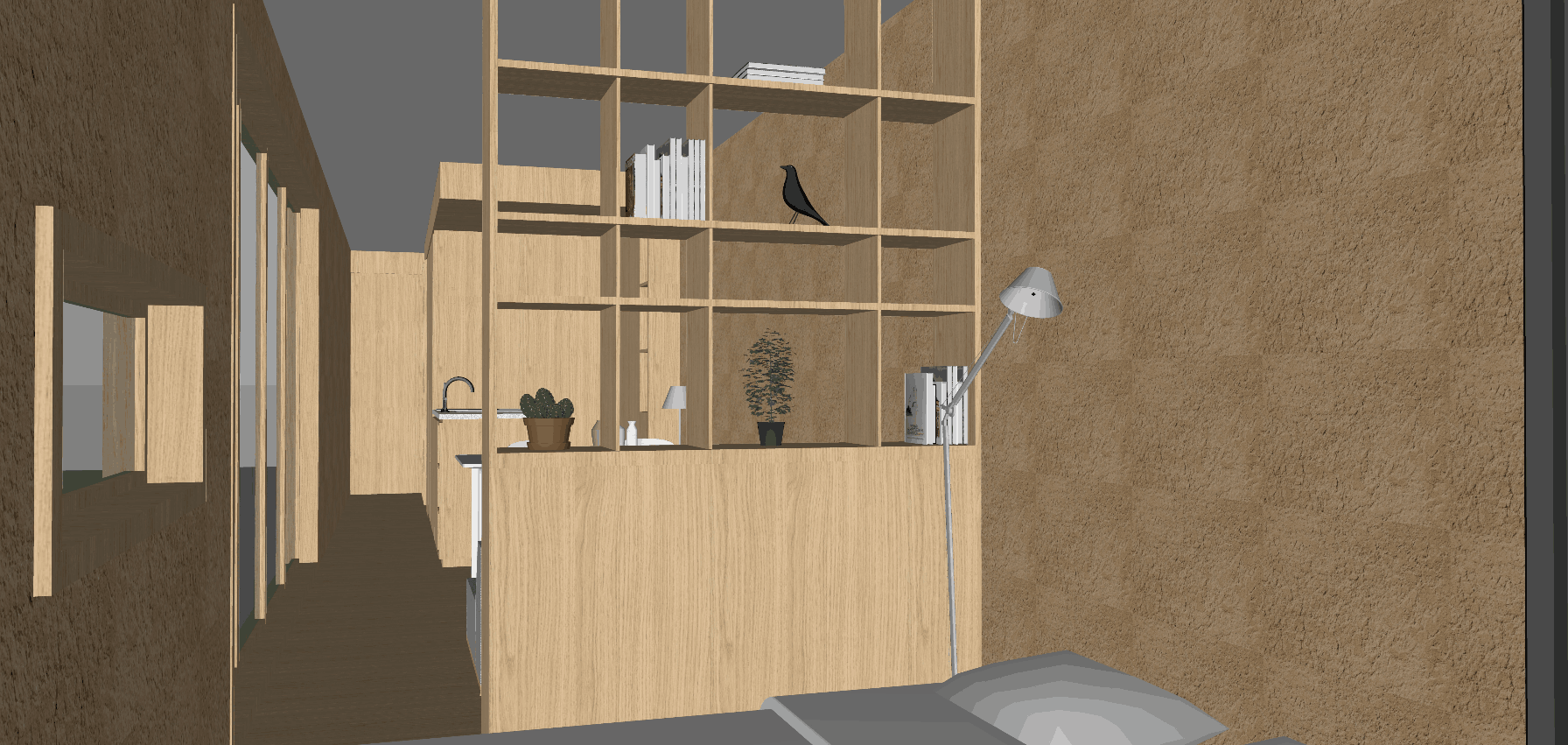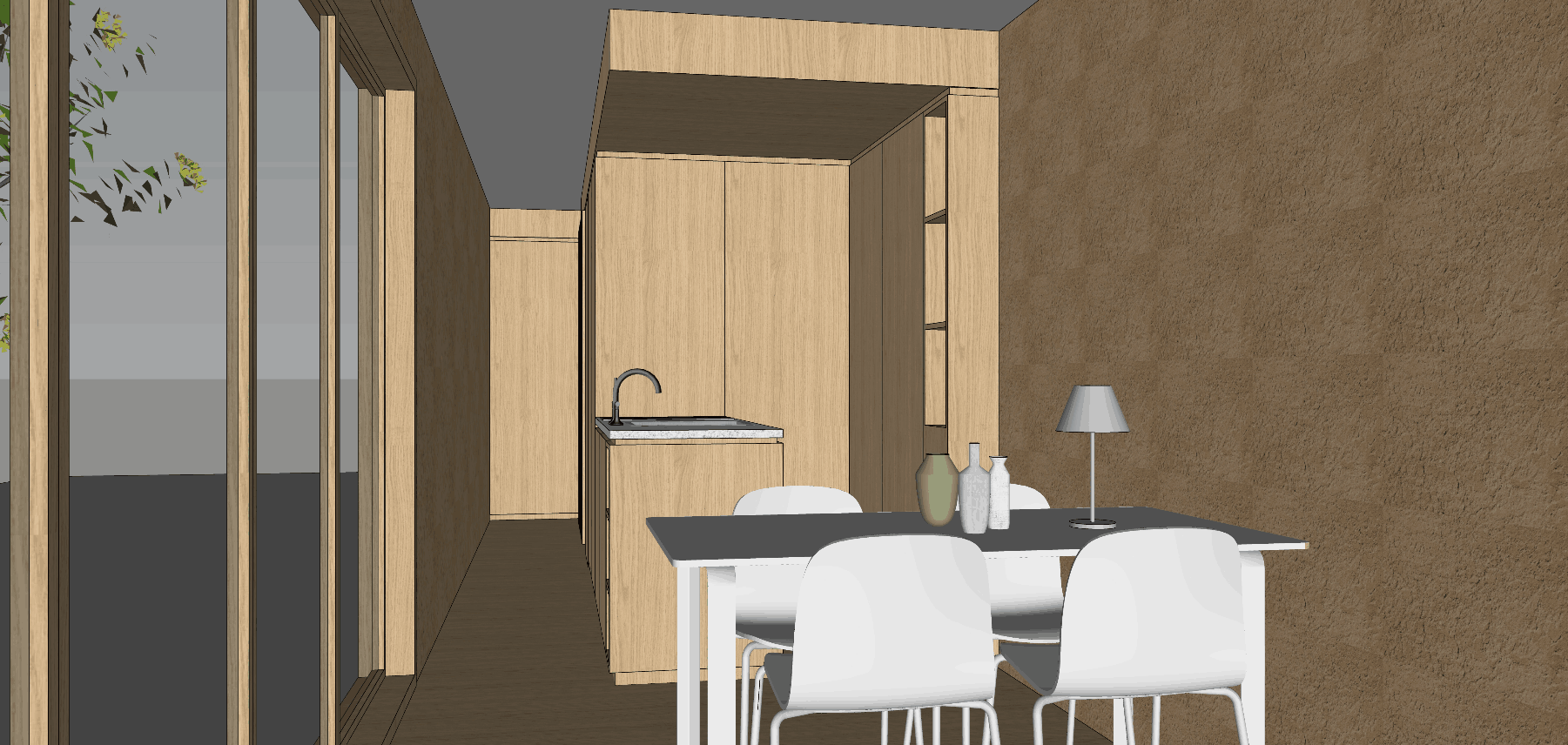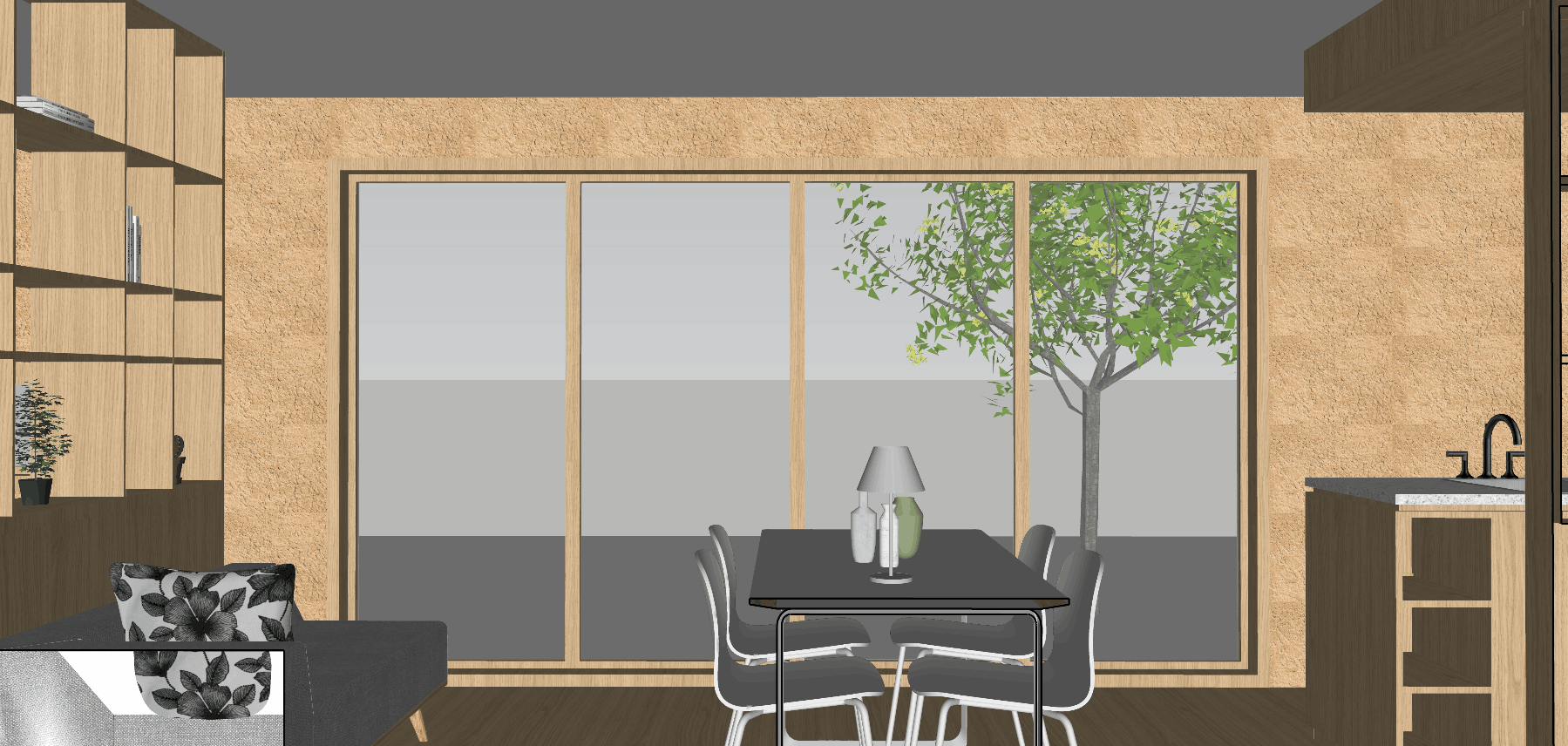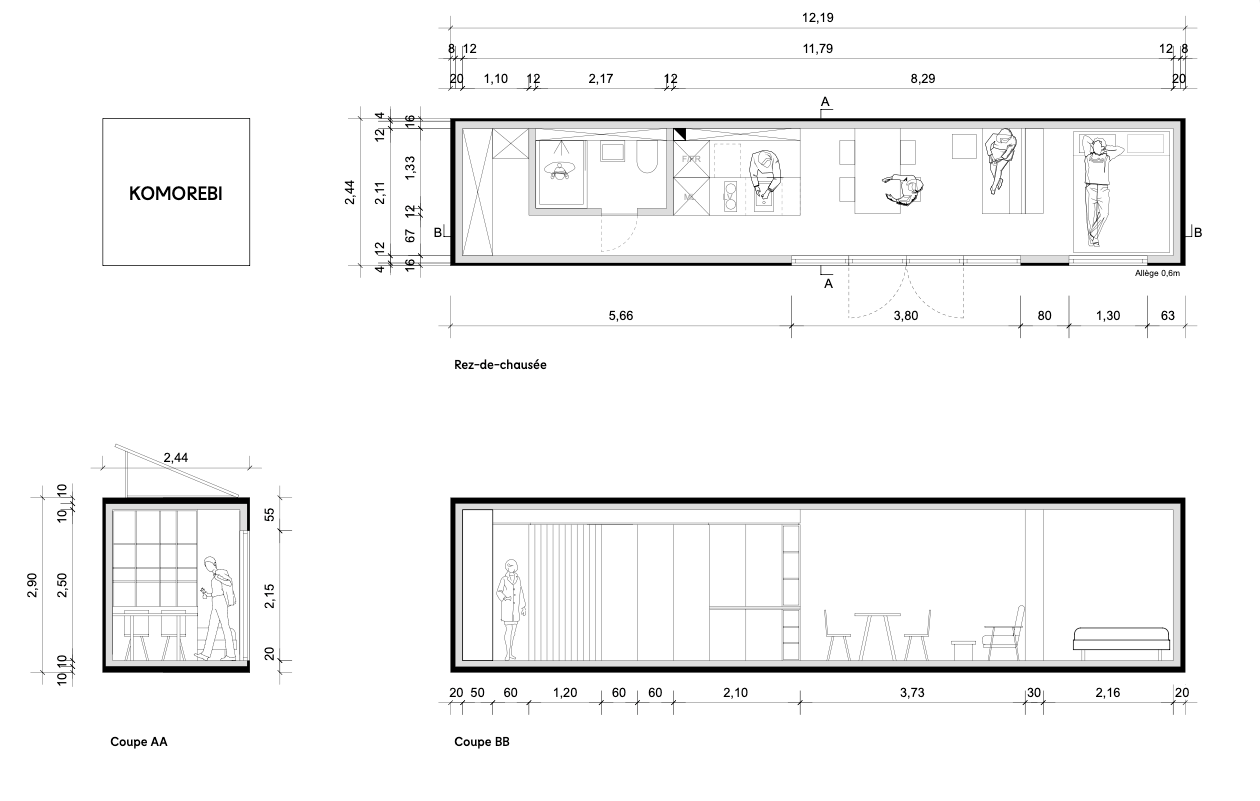The modular housing concept developed by Krack is based on the principles of circular economy and aims to offer a solution to the systemic housing problem, which has been particularly topical in Luxembourg recently. "Komorebi Cabins uses containers that have already been used for freight and that we transform into housing modules," explains Krack. "This principle in itself is nothing new, but it is an answer I would like to formulate to offer affordable housing in Luxembourg. These are not Tiny Houses, but compact dwellings that can accommodate one or two people, as well as occasional guests," he explains.
Micro-urbanism adapted to the site
In addition, he asked Dewey Muller Architectes Urbanistes to assist him in his approach to propose a quality micro-urbanism and a fair implantation of the containers in relation to the different potential sites, located near a station or another means of public transport. "It is a project that lives through the collective," explains Christine Muller, head of Dewey Muller. "The layout of the dwellings reacts to the land on which they are located and tends to foster community life in these newly formed small neighbourhoods."
The Cabins are laid out on the site like a small village, with a main and secondary street, a square and common spaces that could be a commercial space, a repair café, a co-working space or urban gardening spaces, for example. At the entrance to the village, there is also a sorting centre for recycling, a bicycle room and--very importantly--a café.
"The quality of these homes is also due to the community life that is offered," explains Muller. "Their modularity and lightness of installation allow them to be adapted to different situations, as well as over time. This approach offers great sustainability, as the adaptability is very high." The modules can be assembled and disassembled in a day.
Self-sufficient and sustainable housing
Each unit has an interior space of 25m2. There is a dressing room, a shower room and toilet, a fully equipped kitchen area and a living-dining area. A bookcase separates the sleeping area, which is furnished with a double bed.
The dwellings also have a private garden of approximately 30m2. This outdoor space is accessible from each dwelling via a large bay window. It is arranged in such a way as to generate an intimate outdoor space, without direct views from neighbouring containers. This makes it possible to take full advantage of this surface when the weather is nice and to generate a generous indoor-outdoor relationship.
From an energy point of view, each container is designed to be as autonomous and neutral as possible. Thanks to the use of high performance insulation and natural materials that balance the hygrometry, it requires little heating and air conditioning. It will also be equipped with photovoltaic panels that will provide part of the electricity and hot water production, as well as individual compact heat pumps. For the rest, it is simply connected to the existing urban networks, given the specificities of the site.
It is envisaged that the containers will be purchased locally from CFL Multimodal. They are then transported by train or truck to a carpentry workshop where they can be fitted with furniture made from wood from the "Eist Holz" chain. Everything is made in Luxembourg; it is a local product.
Young people as a target audience
"This project is particularly well suited to young people who want to enter working life independently and who do not yet have a sufficiently high salary to access the current conventional property market," explains Krack. "But this is not exclusive, and these homes are of course open to anyone who wants to live in them. The homes will be offered at a price ceiling that should be around €800 per month, according to the latest calculations made by the project initiator.
"This proposal is a direct counter-offer to ‘café rooms’, which should no longer exist," says Krack, referring to cheap and low-quality rooms. "Everyone should have the opportunity to have decent independent accommodation, without spending half their salary on it. We need to be able to come back to a price that allows people to spend only a third of their income on their housing needs. By offering this service, the inhabitants would therefore regain purchasing power. Just as you have a subscription for your smartphone or the gym, I propose putting a subscription for your home on the market. Crises historically lead to new forms of housing. Komorebi Cabins can be a new form of housing for the crisis we are going through."
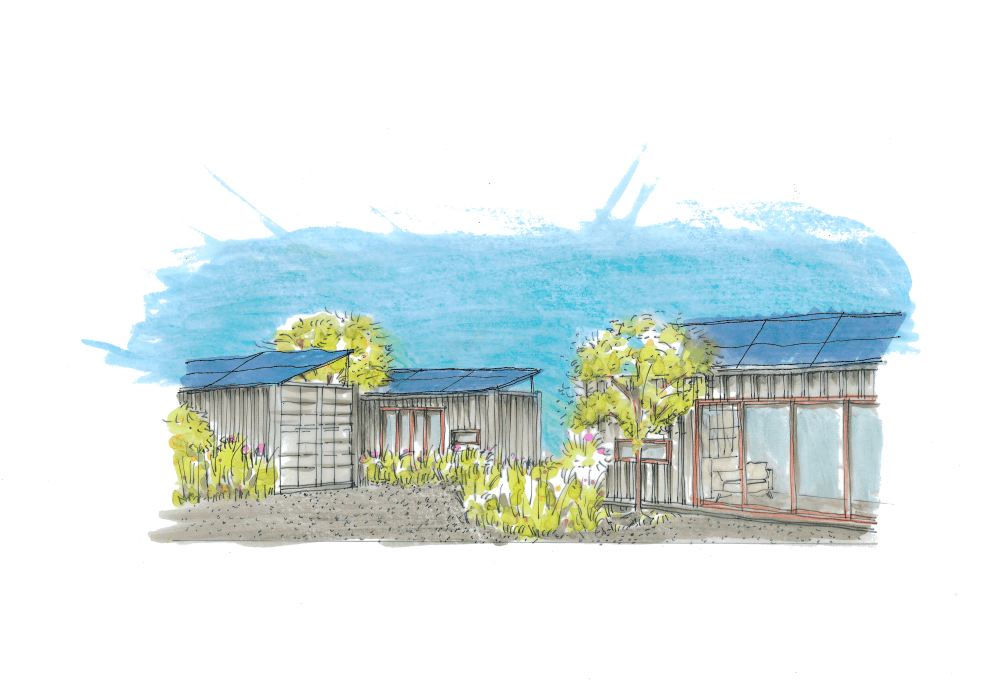
Between the Cabins, spaces are vegetated. Dewey Muller Architectes Urbanistes
A possible third life
If the container is no longer used as housing, a third life is already planned for it, in accordance with the principles of the circular economy. Krack: “If you take out the sofa and the bed, this module can still be used in a third life as a meeting room for associations or as a room for construction site meetings, for example. It can also be emptied completely and used again for storage.”
At the moment, the containers are being studied and are not yet in production, but this could happen in the near future. There is also the challenge of finding land for these new districts, but on this point Krack is confident. "We believe that all the players needed to implement this project are willing and can actively help us to realise this idea in the short term. Moreover, the legal framework leaves us some room for manoeuvre, which we intend to exploit to the full."
This story was first published in French on . It has been translated and edited for Delano.
